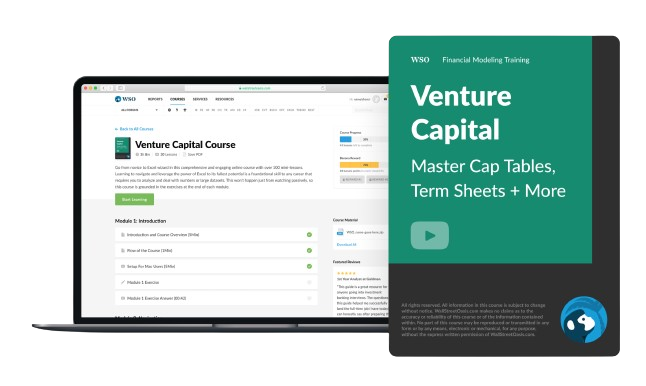Accredited Investor
An individual who is legally allowed to participate in certain securities offerings under federal securities laws
What Is an Accredited Investor?
An accredited investor is an individual who is legally allowed to participate in certain securities offerings under federal securities laws. These securities are usually not registered with financial authorities and not available to the general public.
These investors are entitled to the privilege of investing in early-stage securities if they satisfy at least one requirement regarding their income, net worth, asset size, status, or professional experience.
They are allowed to participate in these limited offerings because they are deemed financially sophisticated and able to protect themselves from suffering any severe financial loss. Limiting these offerings to only qualified investors renders authority from the SEC unnecessary.
Unlike public offerings that are registered with the SEC, private offerings that are exempt from SEC authority do not have to disclose any information to accredited investors. These offerings come with great risks, and you should be aware that you could lose your entire investment.
The term accredited investor comes from Regulation D under the Securities and Exchange Commission (SEC) of the United States. It is used to refer to investors who are financially sophisticated and have less need for financial protection than the general public.
These investors are usually high-net-worth individuals, banks, insurance companies, or brokers. This classification is not strictly reserved for individuals, as companies can also gain the title.
These investors usually have more opportunities to make money than non-accredited investors. The Securities and Exchange Commission allows companies and private funds to skip the registration process under one condition. They sell their assets to accredited investors.
These high-net-worth investors are allowed to invest directly in the world of private equity, private placements, hedge funds, venture capital, and equity crowdfunding.
They have opportunities to invest in a massive asset group that is available to only them, thus giving them a huge advantage over non-accredited investors in terms of making money.
Understanding accredited investors
High net-worth investors or business entities are allowed to purchase securities not legally registered by regulatory authorities like the SEC.
Many companies decide to only offer securities to this high net-worth class of investors because it can save them a lot of money. Registering securities with the SEC is an expensive and time-consuming process, so it is often easier for companies to skip this step.
This type of securities offering is known as a private placement. Since they are skipping the registration process with the SEC, these offerings have the potential to pose a great deal of risk to investors.
Therefore, authorities need to ensure that they are financially stable, professionally experienced, knowledgeable, and able to protect themselves when making such risky investments.
Instead of regulating the securities, the role of regulatory authorities in these private offerings is to verify the qualifications of the investors involved in the offering.
They set necessary guidelines and expectations for who qualifies as a knowledgeable and sophisticated investor. Authorities also help determine if each applicant has the necessary qualifications and financial means to participate in the purchasing of unregulated securities.
The SEC changed the definition of an accredited investor on August 26, 2020.
The amendments now allow for investors to be qualified based on their professional knowledge and experience in addition to their income or net worth. The amendments also expand the list of entities that can be considered qualified investors.
The SEC now defines these investors as:
-
Individuals who have certain professional certifications, designations, or credentials
-
Individuals who are knowledgeable employees of a private fund
-
SEC- and state-registered investment advisers
Individuals holding Series 7, Series 65, and Series 82 licenses are also qualified investors. The SEC can continue adding certifications for becoming a qualified investor as they see fit.
Qualifications to Accredited Investors
The qualifications for these investors can sometimes vary depending on the jurisdiction or the local market regulator. In the U.S., the broad definition of this type of investor is defined by the SEC in Rule 501 of Regulation D.
The rule says to be an accredited investor, you must:
-
Have an earned income that exceeds $200,000 (or $300,000 together with a spouse) in each of the prior two years and reasonably expect the same for the current year OR
-
Have a net worth over $1 million, either alone or together with a spouse (excluding the value of your primary residence) OR
-
Hold a series 7, 65, or 82 licenses.
When calculating your net worth, you must add up all of the assets owned by you alone or with a spouse or spousal equivalent at the time of the sale of securities. You do not include the value of your primary home in your calculation.
The general securities representative license (Series 7), the private securities offering representative license (Series 82), and the licensed investment adviser representative (Series 65) are all professional certifications for financial professionals.
To obtain these licenses, you must pass their corresponding exams. Individuals holding one of these licenses in good standing are considered knowledgeable investors because they have proven their vast financial knowledge and experience by passing the exam.
There are also other categories of qualified investors, including
-
Any trust with total assets over $5 million, not formed specifically to purchase subject securities, whose purchase is directed by a sophisticated person, OR
-
Certain entities with total investments over $5 million, not formed to specifically purchase subject securities OR
-
Any entity in which all of the equity owners are sophisticated investors
A sophisticated person in this context is a person who has sufficient knowledge and experience in financial and business matters to evaluate potential risks involved with the investments made by the trust.
Example Of an accredited investors
To find out if you are qualified, you have to calculate your net worth. You do this by adding up all of your assets, excluding your primary household, and subtracting your liabilities. This can be considered your personal balance sheet.
Let’s take a hypothetical person named John, for example. Let’s say John’s income was $100,000. This does not meet the income requirement for an accredited investor, but John could still satisfy the net worth requirement, so he should calculate it to see if it is above $1 million.
Let’s say John has a car worth $100,000 but with a loan of $40,000, a 401(k) account worth $500,000, and a savings account worth $450,000. To calculate his net worth, he creates a personal balance sheet that looks like this:
| Example Calculation Of Net Worth | |
|---|---|
| Assets | |
| 401(k) | $ 500,000.00 |
| Savings account | $450,000.00 |
| Car | $ 100,000.00 |
| Total assets | $ 1,050,000.00 |
| Liabilities | |
| Car loan | $ 40,000.00 |
| Total Liabilities | $ 40,000.00 |
| Net worth | $ 1,010,000.00 |
To calculate his net worth, all John had to do was subtract his total liabilities from his total assets. John qualifies as an accredited investor because even though he does not satisfy the income requirement, his net worth exceeds $1 million.
Let’s take another person named Mike, for example. Mike’s assets consist of a car worth $20,000, a 401(k) worth $300,000, and a savings account worth $400,000. Mike also has student loans worth over $50,000. Mike’s income is $150,000.
If you add up Mike’s assets (20,000 + 300,000 + 400,000) and subtract his liabilities (50,000), his net worth comes out to be $670,000. This net worth does not exceed $1 million, and his income does not exceed $200,000, so Mike does not qualify as an accredited investor.
Purpose of accredited investors
Regulators of markets have two tasks, promoting investment and protecting investors. These regulators are incentivized to encourage private investments and entrepreneurial activities because they have the potential to bring great returns.
Entrepreneurial investments such as start-ups are a great way to invest in a company in its early stages and get a massive return on investment if the company succeeds. These investments are great for financially stable investors who can protect themselves if the investment fails.
The problem with these investments is that they come with great risks. Regulators are responsible for protecting less knowledgeable investors who may not have enough money to protect themselves from the high losses that can come from risky investments.
Because of these reasons, the SEC created the provision of qualified investors to allow access for both investors who are financially stable and investors who are knowledgeable and experienced to invest in these higher-risk securities.
This allows market regulators to promote the large class of private investments, start-ups, and all non-regulated securities. At the same time, they do not have to worry about sacrificing the safety of less knowledgeable and less financially equipped investors.
There are still cons to being this type of investor. The downsides are related to the investments themselves. Most investments that require investors to be financially equipped, knowledgeable, and experienced come with high risk.
They also require a high minimum investment. You cannot simply put a few hundred dollars into one of these investments. You will have to commit at least a few hundred thousand dollars to partake in these investments, so it is a very high-stakes game that you have to be committed to.
Additionally, you will not be able to access your investment capital for a long time. If you bought a few stocks online, you can sell those shares anytime and get your money back. On the other hand, if you invest in a hedge fund, your money may be locked up for a year, five years, or more.
There are also higher fees associated with these types of investments. They primarily come from performance and management fees, ranging from 15 to 20 percent.
How to become an accredited investor
No formal agency or institution needs to confirm an investor's accreditation and no certification is required. Since 2013, the SEC has required that anyone selling to high net worth or knowledgeable investors take several steps to verify their credibility.
Simply checking a box or saying that an investor is verified with no proof is no longer allowed. It is the responsibility of the sellers of securities to verify the investor's credibility, not the SEC.
Anyone who wants to become a qualified investor can approach the issuer of the unregulated securities they wish to buy. It is up to the issuer to ask the applicant questions about their qualifications as an investor.
This is usually done through a questionnaire. The questionnaire may require various documents, such as the applicant’s account information, financial statements, and balance sheet, to prove their qualification.
The documents required by the questionnaire can sometimes even include tax forms, salary slips, and letters from public accountants or investment broker reviews. The issuer may also ask for the applicant’s credit report.
Anyone who bases their qualification on income will likely need to provide tax returns, W-2 forms, and other documents that indicate proof of their wage. This is a necessary measure for the issuers to take to prevent anyone from lying about their income.
Anyone who proves their qualification based on assets or net worth will likely need to provide balance sheet information, account information, and a credit report.
You can do several things if you want to become a certified investor but do not meet the requirements. First, you could increase your income to meet the $200,000 requirement or increase your assets.
You could also take a test to obtain one of the general securities representative licenses to prove that you are a knowledgeable and experienced investor.
Edited by Colt DiGiovanni | LinkedIn
Free Resources
To continue learning and advancing your career, check out these additional helpful WSO resources:




or Want to Sign up with your social account?